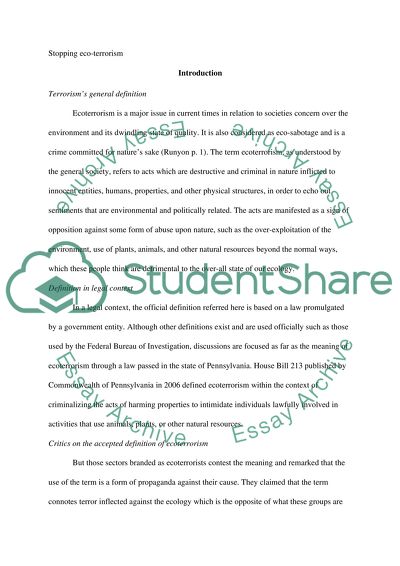Cite this document
(“Discuss terrorism conducted in the interest of environmental Essay”, n.d.)
Discuss terrorism conducted in the interest of environmental Essay. Retrieved from https://studentshare.org/miscellaneous/1547949-discuss-terrorism-conducted-in-the-interest-of-environmental-causesecoterrorismhow-can-ecoterrorism-be-stopped
Discuss terrorism conducted in the interest of environmental Essay. Retrieved from https://studentshare.org/miscellaneous/1547949-discuss-terrorism-conducted-in-the-interest-of-environmental-causesecoterrorismhow-can-ecoterrorism-be-stopped
(Discuss Terrorism Conducted in the Interest of Environmental Essay)
Discuss Terrorism Conducted in the Interest of Environmental Essay. https://studentshare.org/miscellaneous/1547949-discuss-terrorism-conducted-in-the-interest-of-environmental-causesecoterrorismhow-can-ecoterrorism-be-stopped.
Discuss Terrorism Conducted in the Interest of Environmental Essay. https://studentshare.org/miscellaneous/1547949-discuss-terrorism-conducted-in-the-interest-of-environmental-causesecoterrorismhow-can-ecoterrorism-be-stopped.
“Discuss Terrorism Conducted in the Interest of Environmental Essay”, n.d. https://studentshare.org/miscellaneous/1547949-discuss-terrorism-conducted-in-the-interest-of-environmental-causesecoterrorismhow-can-ecoterrorism-be-stopped.


